Are Vegan Protein Powders Good for You? Peas, Rice, and Everything Nice!
Protein powders have become a staple in the pantries of health enthusiasts, and the rise of plant-based diets has given birth to a booming market for vegan protein powders. They sit pretty on the store shelves, boasting an array of health benefits and muscle-making promises. Whether one is a gym junkie or just looking for a convenient protein source, vegan protein powder claims to fit the bill. But can a scoop of pulverized plants really rival the traditional whey and egg counterparts? Many fitness aficionados and the wellness-curious have pondered this very question.
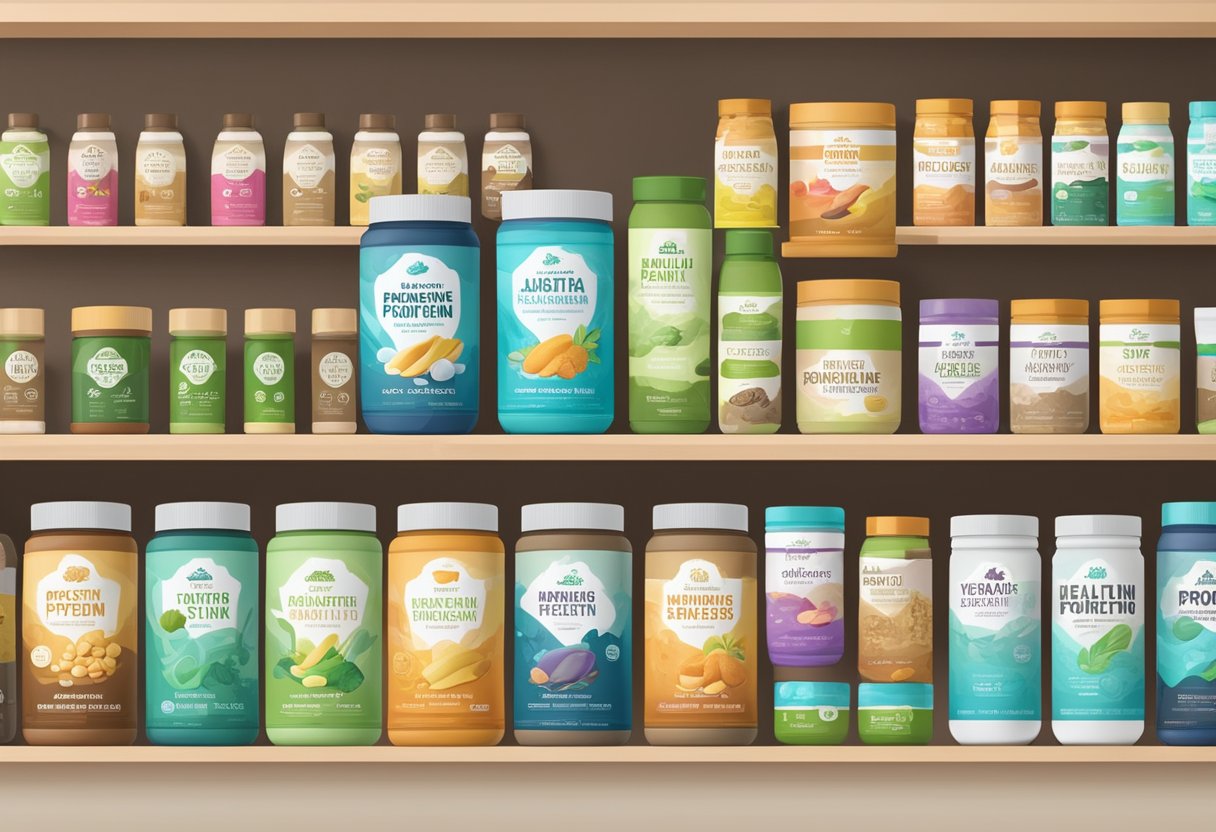
With a surge in lifestyle changes aimed at reducing animal product consumption, people are increasingly reaching for vegan protein powders to meet their protein intake needs. It's no secret that sufficient protein is crucial for rebuilding muscle, keeping hunger at bay, and maintaining overall health. However, some skeptics cast doubt on the efficacy of plant-based proteins, questioning their amino acid profiles and digestibility. Others give a thumbs-up, citing the variety of sources like pea, hemp, and brown rice protein that keep vegan powders diverse and interesting.
Key Takeaways
- Vegan protein powders are a popular protein source for those on plant-based diets.
- There's a debate on the effectiveness of plant-based proteins compared to animal-based proteins.
- Vegan protein powders come from a variety of sources and offer more than just protein.
What's Shakin' in Vegan Protein Powders?
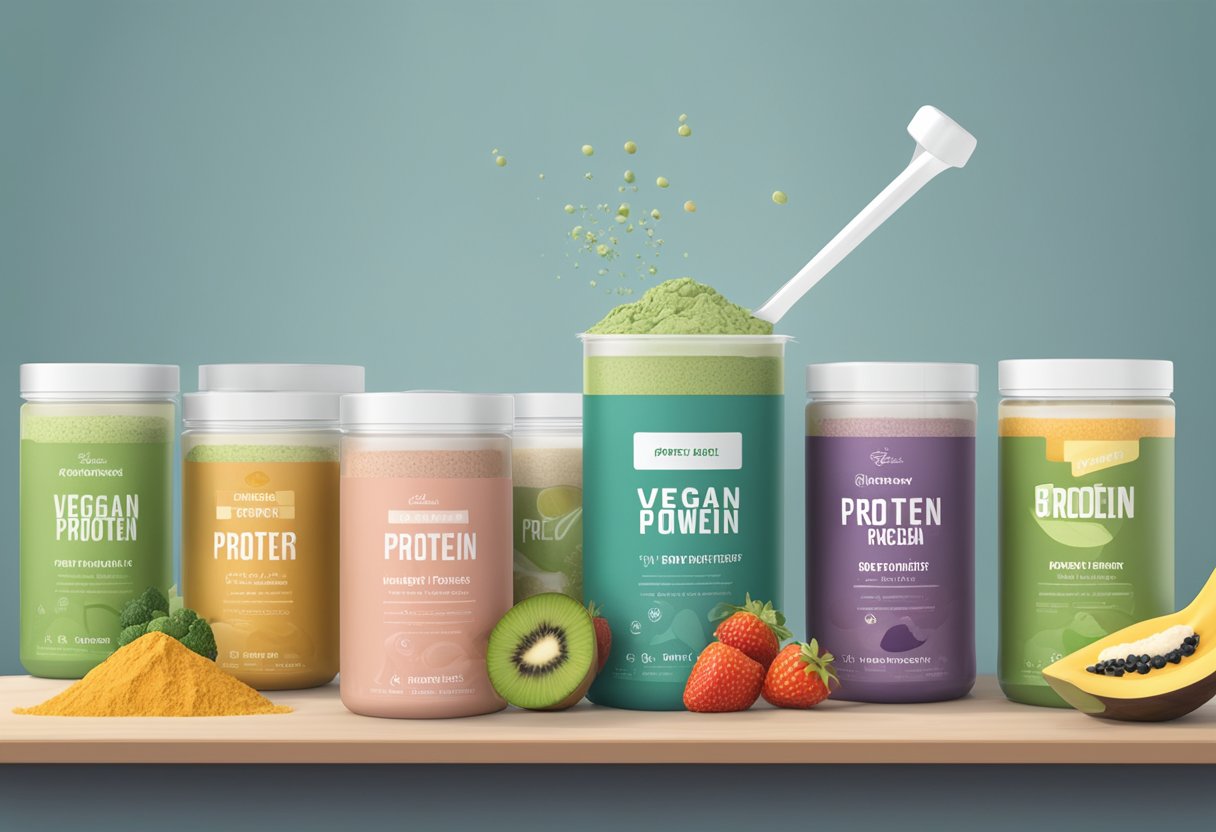
In the world of muscle shakes and gains, vegan protein powders are having a moment with their plant-based biceps flexing some serious nutritional muscle. They're strutting their stuff with none other than peas, rice, and hemp leading the power-packed parade.
Pea-k Performance
Peas are not just for pushing around the plate anymore. They have muscled their way into the spotlight as pea protein, a heavyweight in the plant protein powders lineup. With its impressive amino acid profile, this tiny green machine offers a complete protein that's giving whey a run for its money. And for those with sensitive tummies, pea protein won't have them running for the hills — it's free from lactose and gluten!
Rice to the Challenge
Brown rice protein is like the quieter cousin at the protein family reunion. It prefers to let its complete set of amino acids do the talking — minus the essential amino acid lysine where it's a bit shy. But paired with legumes or pea protein, it's an unbeatable tag team for plant-based protein powders, elevating the humble grain to a nourishment ninja that's easy to digest and kind to both your bod and the environment.
Hemp-pire of Nutrition
Step aside, kale; there's a new superfood sheriff in town. Hemp protein comes from the mighty hemp seed, packed with omega-3 fatty acids and a nutty flavor that'll make your taste buds two-step. With benefits for the heart and a good source of fiber and minerals, hemp protein powder is practically a nutritional night club, throwing an all-out bash for your body's needs.
Other Legume Legends
Soy is like the plant protein prom queen, a time-honored favorite in the legume hall of fame. Its protein prowess is well-documented, offering a complete profile of amino acids, just like animal proteins. As outspoken members of the protein powder posse, other leguminous luminaries such as lentils and chickpeas are on the rise, contributing their unique flavors and health benefits to the mix, making sure this plant-based party has no wallflowers.
Muscling Through Myths: Protein Quality and Vegan Gains
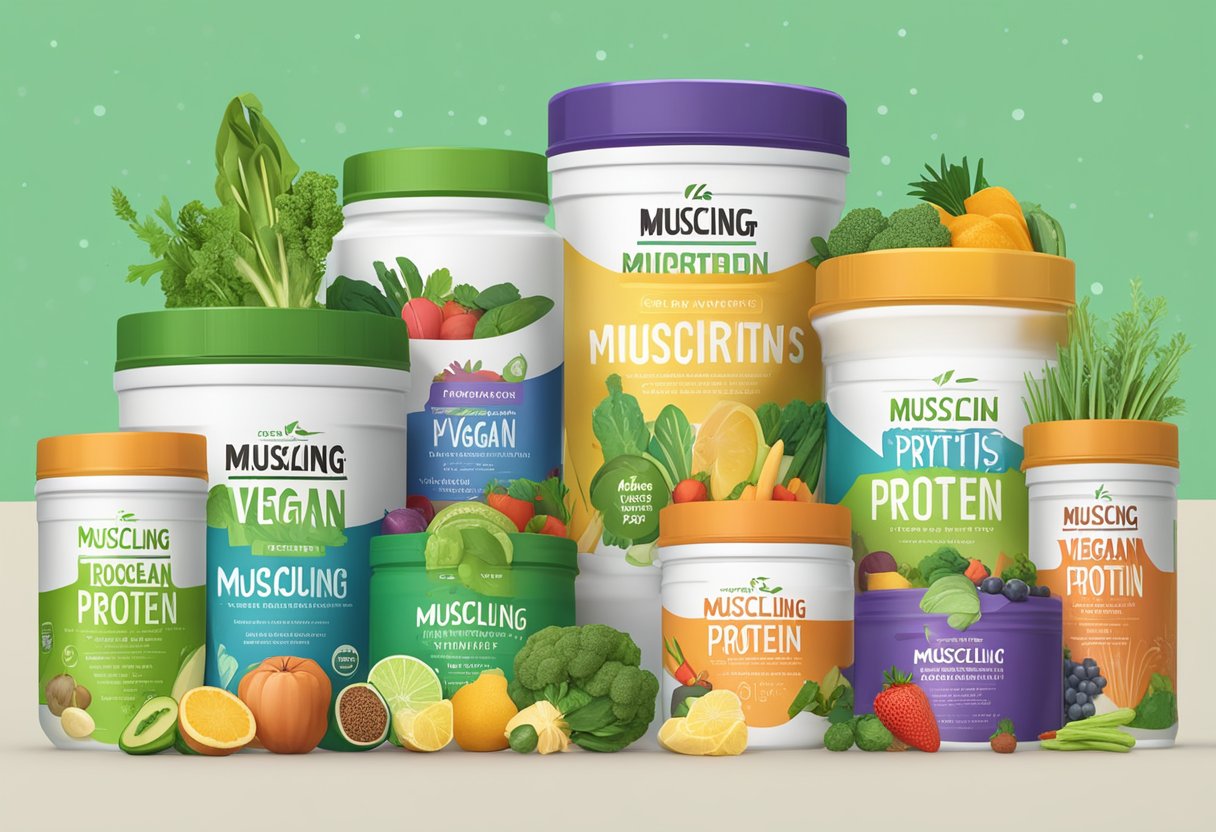
When it comes to building brawn, plant-powered protein often gets benched. But let's flex some facts and lift the lid on how vegan protein powders can be just as effective in the gym as their animal-derived counterparts.
Dairy-Free, Care-Free? Comparing Plant vs. Animal Proteins
Animal proteins, like whey, have long hailed as the hall-of-famers for muscle building because they're complete proteins, meaning they contain all essential amino acids necessary for muscle growth. However, the playing field levels when one considers that certain plant proteins might need a little team effort to make the cut. Think of it like a buddy system. When combined, friends like rice and peas form a plant-protein powerhouse that competes with meat's amino profile. Researchers in muscle tanks might say, "Plants have got game, too!"
-
Complete proteins: Include all nine essential amino acids.
- Animal-based sources: whey, eggs, meat, fish.
- Plant-based sources: quinoa, soy, buckwheat.
Strength in Plants: Building Muscle on a Vegan Diet
Sure, our plant-powered pals might not churn out muscle at the whey their dairy-doting gym buddies do, but they certainly aren't slackers on the bench press. Evidence is sprouting that with proper planning, those embracing the green can indeed build muscle growth and strength. As it turns out, rather than meat, one's diet can be rich in lentils, beans, nuts, and vegan powders without sacrificing gains. Pumping iron? Absolutely, but don't forget to pump those plant proteins, too, if one wants to keep their muscles as satisfied as their conscience.
-
Vegan Protein: Necessary for muscle repair and growth — no steak required.
Optimal intake:
- Athletes: Slightly higher than the average adult.
- Average adult: ~0.4 grams per pound of bodyweight.
In the gym of life, plumping up those peas might be just as effective as pummeling poultry, and swapping steak for seitan doesn't mean one will deflate like a poorly planned pool party. After all, strong is strong, whether it's built by bean or beast.
The Inner Scoop: Nutrition Beyond the Protein
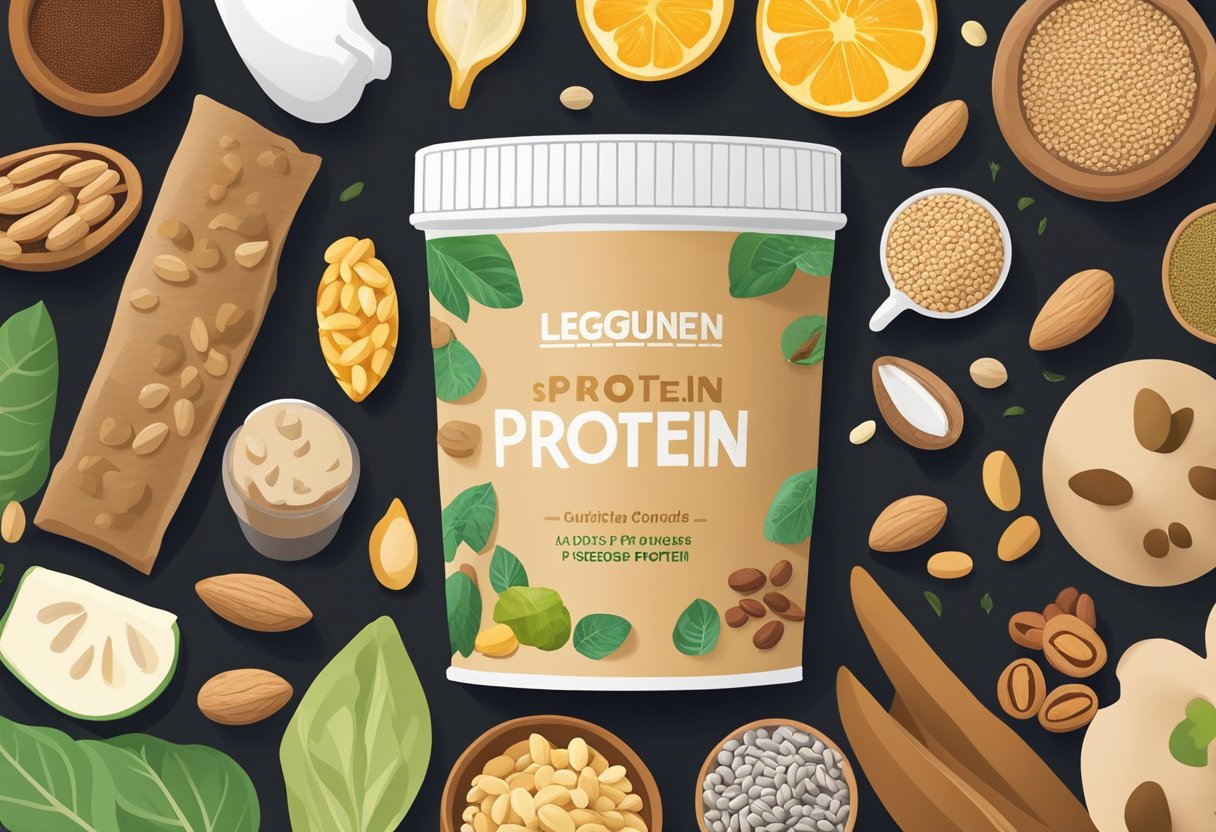
When one thinks of vegan protein powders, visions of muscle-bound plant-eaters might spring to mind. But let's not forget the unsung heroes, the tiny titans of nutrition that come along for the ride: the seeds.
Seedy Business: Nutrients in Pumpkin, Chia, and Sunflower
Pumpkin Seeds: They're not just for jack-o'-lanterns anymore. These little gems are packed with magnesium, crucial for bone health and sleep regulation. But wait, there's more! They also provide a respectable dose of iron, which is great news for keeping the energy levels up and the blood healthy.
-
Nutritional Highlights:
- Magnesium: Helps with muscle and nerve function
- Iron: Essential for oxygen transport in the blood
- Zinc: Supports the immune system
Chia Seeds: Tiny yet mighty, chia seeds are the overachievers of the seed world. These minuscule powerhouses are brimming with fiber, and they are an excellent plant-based source of omega-3 fatty acids. Keep your brain and belly happy with this nutritional double whammy!
-
Nutritional Standouts:
- Fiber: For digestive bliss and fullness
- Omega-3: Fatty acids for brain health
Sunflower Seeds: Bask in the nutritional sunshine with these seeds! Sunflower seeds are loaded with Vitamin E, the body's lipid-soluble antioxidant, which shields the skin from oxidative damage. They're not just a pretty face; these seeds have got substance with a capital 'S'—and Vitamins to boot.
-
Nutritional Sparkles:
- Vitamin E: Protects cells from damage
- Minerals: A treasure trove of health-boosting goodies
In short, these seed siblings bring more to the table than just their protein-rich lineage. They invite a carnival of nutrients, fiber, and vitamins that contribute to overall well-being. So, next time you're sipping that shake, give a silent cheer for the seeds—they're the real MVPs in the game of health.
Sprouting Concerns: Digestion and the Dark Side of Plant Protein
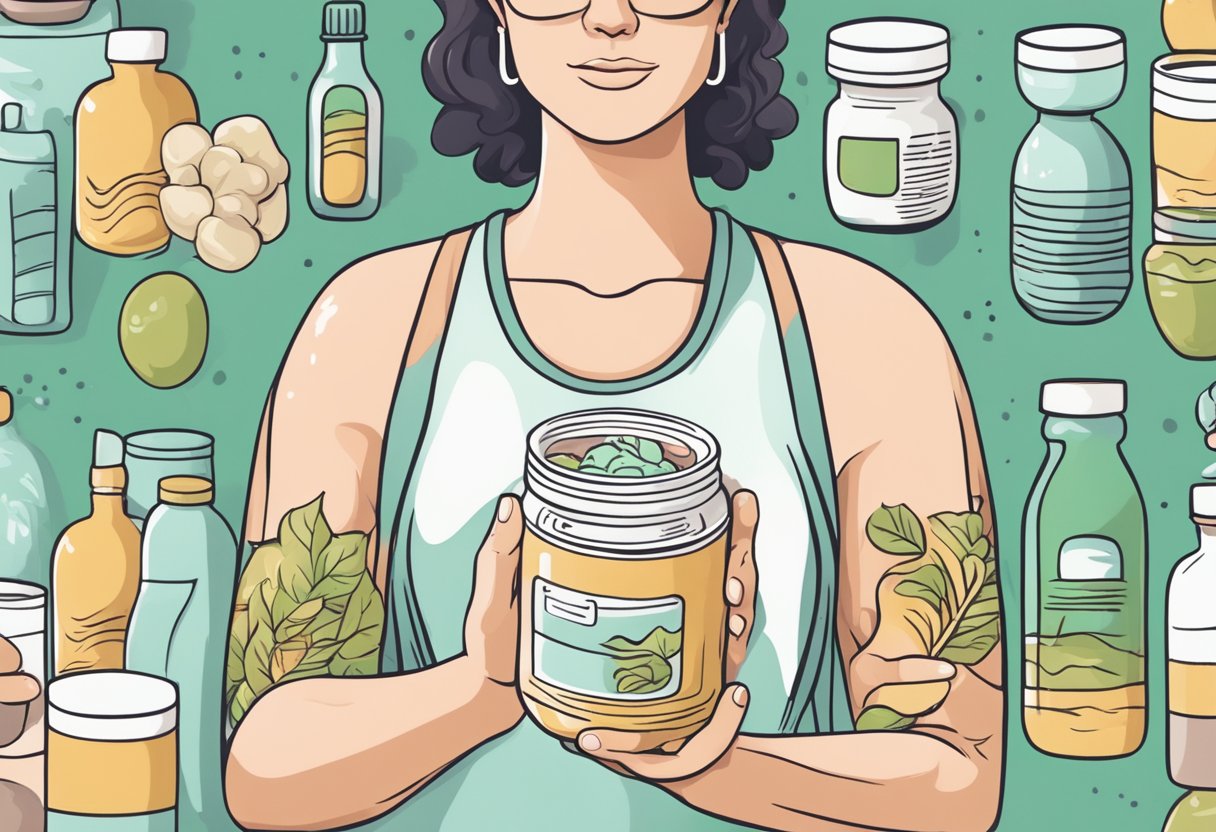
As one treads the garden path of plant-based diets, they might stumble upon a root of discomfort: digestive skirmishes and the unexpected villains lurking in vegan protein powders.
To Bloat or Not to Bloat: Digestive Tales of Vegan Proteins
Vegan proteins love to throw a garden party in your belly, but sometimes, they forget you didn't sign up for the bloating balloon contest. It appears that a troupe of plant proteins bring along fibers and complex sugars which, delightful as they sound, could make your digestion perform acrobatics, leading to unwelcome bloating and gas. According to some troublesome studies, the party often ends with digestive issues where bloat is the main guest, and toilet trips are the go-to activity.
Common Digestive Culprits:
- High fiber content: Plant friends like to pack all that good fiber which can cause a traffic jam.
- Complex sugars: They may sound sweet, but they're party poopers for those with sensitive tummies.
Sweeteners and Sneaky Add-Ins: Label Reading 101
When scanning the guest list—ahem—ingredient panel of your vegan protein, beware of ambiguous plus-ones. The culprits? Artificial sweeteners, sugar alcohols, and that friend who might seem natural but goes by the name of stevia. They don't mean to crash the party, but sometimes they leave behind a trail of digestive hoopla.
Cheeky Add-Ins to Watch Out For:
- Artificial sweeteners: Often uninvited, yet show up regardless.
- Sugar alcohols: May induce an unfortunate chorus of rumbles from the stomach orchestra.
- Stevia: Claims to be the life of the party but sometimes can't take a hint to leave your gut in peace.
Remember, the secret handshake to a happy belly with vegan protein is to know your guests well and anticipate their quirks. A little vigilance goes a long way in dodging the dark side of plant protein.
Taste Buds Unite: Palatability of Plant Powders
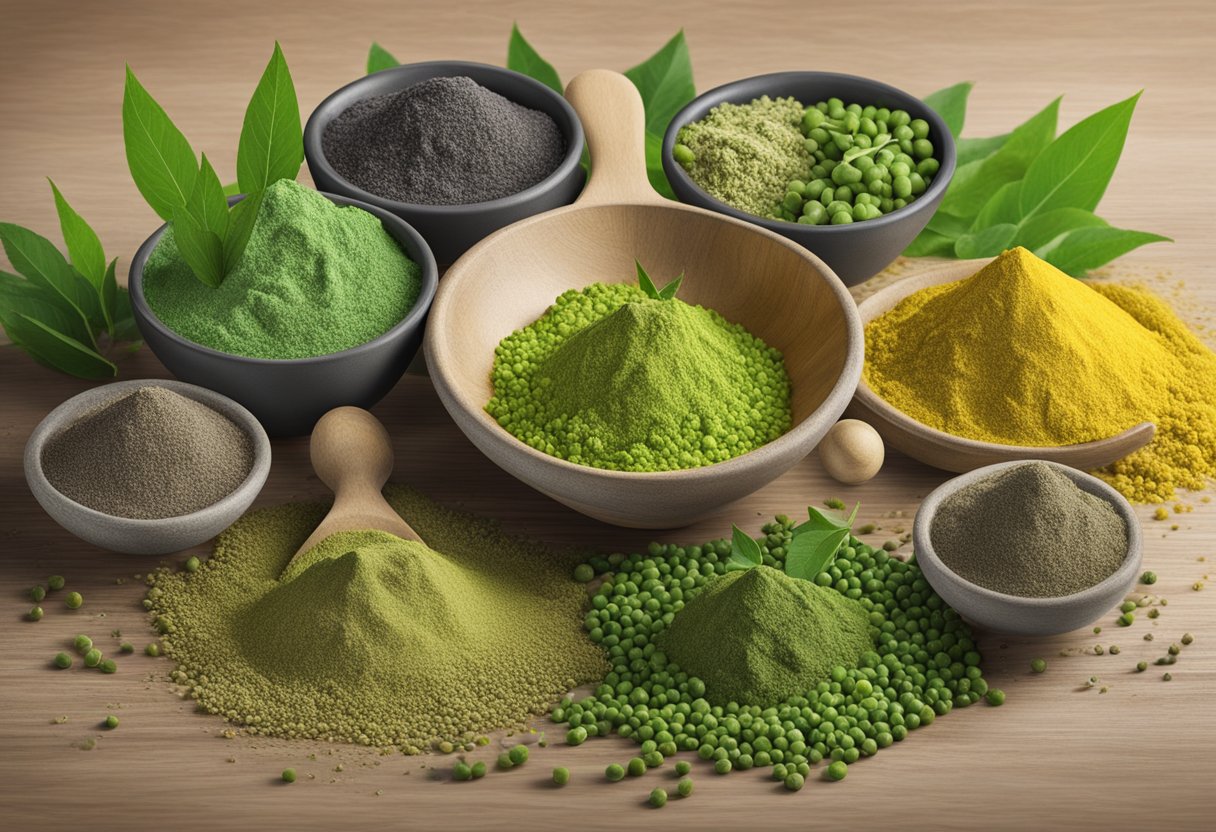
When it comes to vegan protein powders, the taste can be as varied as the socks in your laundry pile. They bring a whole carnival of flavors to your palate, from delightfully delicious to making your taste buds question your life choices.
Flavor Fiascos and Triumphant Tastes
One opens their shaker bottle with hope, only to be greeted by flavors that prompt a moment of silence for their expectant taste buds. A protein shake isn't always a smooth ride on the flavor express. There's the occasional aftertaste ambush—where everything seems fine until a few seconds after the last gulp. It's like a surprise party... that no one actually wanted to attend.
Then there are the victors, the tastes that soar high above the mediocre. Powders that not only blend seamlessly into smoothies but elevate oatmeal from zero to hero. They're the unsung heroes that make baked goods come alive, sneaking in protein with a secret handshake of sweetness. One may find themselves whispering sweet nothings to their cinnamon swirl protein powder, thanking it for not tasting like cardboard.
"Oh, what's that? Cinnamon in my oats? It's like a hug for my mouth!" they exclaim, their morning ritual now a rendezvous with flavor.
The trick is finding the protein powder that doesn't feel like a taste bud endurance test but instead, a little party in every shake. So, they raise a glass (or shaker cup) to the plant powders that get it right, making the journey to good health a flavorful quest indeed!
Got the Scoop? How to Use Vegan Protein Powders Effectively
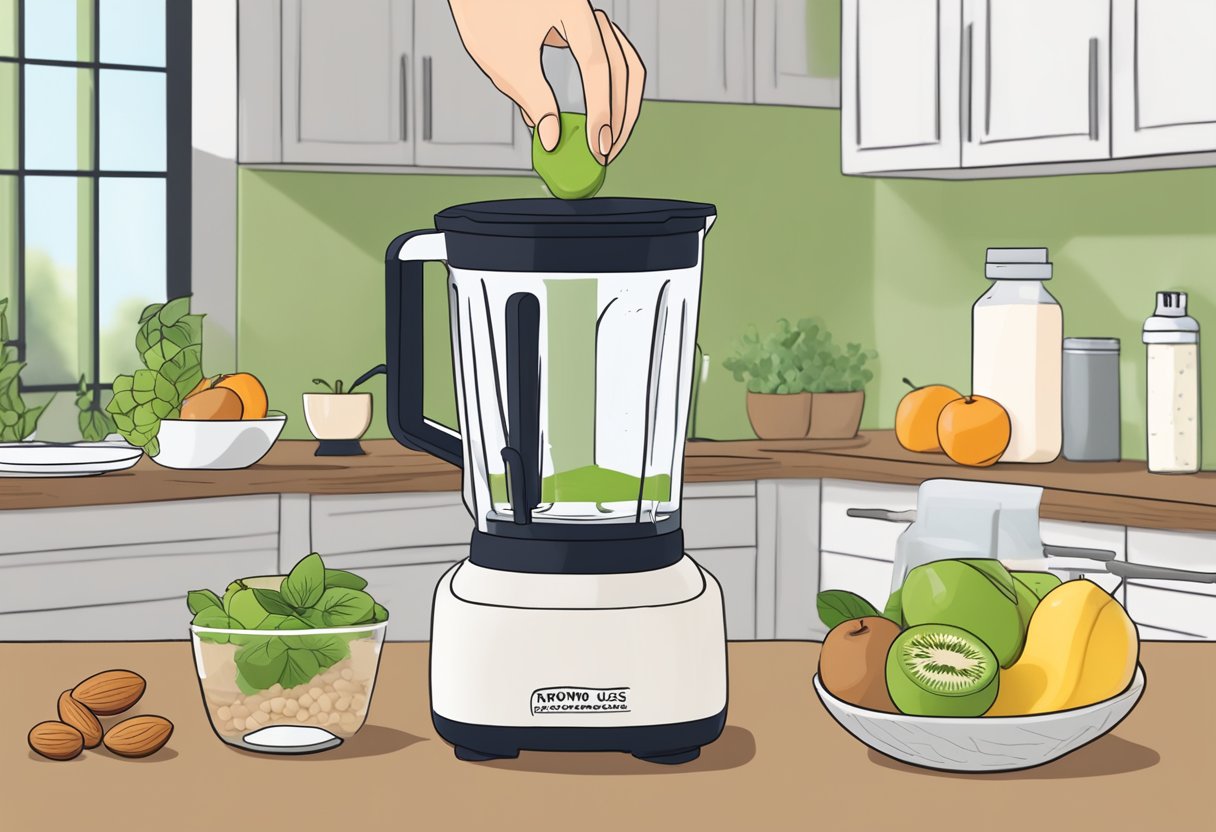
Before diving into the wondrous world of vegan protein powders, one must know they're not just for shakes anymore. They can sneak into your meals and snacks, giving you that protein punch in the most undercover ways.
Shake It Up: Vegan Protein in Liquid Meals
For the liquid meal aficionado, vegan protein powders are like the superheroes of smoothies and shakes. They merge seamlessly, battling against hunger with their protein content.
-
The Smooth Operator: Combine a scoop of vegan protein with almond milk, frozen berries, a banana, and a grin. It's a smoothie that can swoop in post-workout to help those muscles repair.
-
The Shaken, Not Stirred: After exercise, when one's body is crying out for sustenance, he or she can shake up a vegan protein blend with some water or plant milk. It's straightforward yet effective for body weight management.
Unbaked Potential: Snacks and Solids
One need not fire up the oven to have their vegan protein powder join the party. It's ready to roll, no RSVP needed.
-
The Baked-Goods Gatecrasher: Throwing a spoonful into baked goods can turn a sullen snack into a protein-rich fiesta. Yes, muffins, they're looking at you.
-
The Oat Intruder: Sneaking some powder into the morning oatmeal can make it feel like one's breakfast is flexing its nutritional muscles at them. With added protein, oats go from "meh" to "more, please!"
Using vegan protein powders effectively can be a playful addition to one's diet that supports their lifestyle whether they're looking to maintain or change their body weight through exercise and nutrition. Just remember, always give that powder a good stir or a hearty shake – nobody likes a clumpy situation.
The Green Regimen: Vegan Protein Powders and Athletic Adventures

When athletes trade the beef for the leaf, they often wonder if they can still hit their protein goals. Enter the Green Regimen with a lineup of vegan protein powders designed to keep muscles as happy as a cow in a field of endless grass.
Flex Your Greens: Protein for the Plant-Powered Athlete
Stepping into the plant-based ring doesn't mean waving a white flag to muscle gains. The plant-powered athlete has an arsenal of vegan protein options that kick as much grass as their whey counterparts. With options like the organic proteins from Green Regimen, athletes can maintain their muscle mass and perhaps use less time explaining to the world where they get their protein from.
- Muscle Maintenance: Athletes need to keep their muscles fed with quality vegan protein to recover from a good gym thrashing. A scoop here and a blend there, and bam—you're the Superman of the vegan diet, minus the cape.
- Plant-Based Power: Swapping the steak for shakes might have folks asking if you're just eating salads all day. With products tailored for athletic adventure, vegan protein has athletes smirking while they churn out reps with vigor.
So, if you thought a vegan athlete might only be good at running—away from a barbell, think again. These protein powders are showing that one can flex their greens and still be the envy at any weightlifting platform or sprint track.
The Lowdown on Labels: Decoding Vegan Protein Products
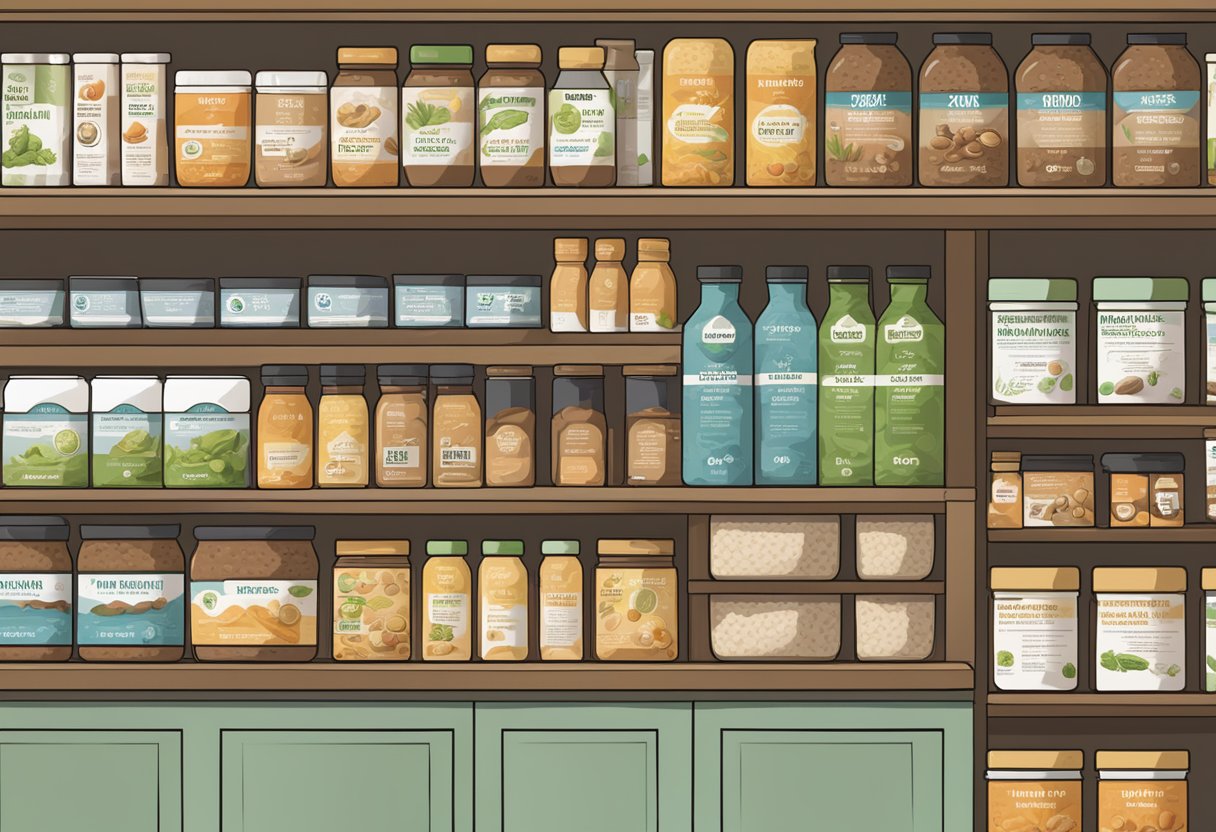
When it comes to vegan protein powders, one could say the labels sometimes require a PhD in hieroglyphics. Fear not, for they're about to be deciphered without the need for an ancient Egyptian.
The Alphabet Soup of Nutrition: FDA and BCAA
Labels are festooned with acronyms that could befuddle even the savviest of shoppers. The FDA (Food and Drug Administration) is the watchdog ensuring that what’s inside the tub matches the splendorous promises on the outside. Their seal of approval means that, at the very least, the vegan protein won't turn one into a mutant plant.
On the flipside, BCAAs (Branched-Chain Amino Acids) are the hotshots of the protein world, the ones everyone wants at their muscle party. These are the building blocks of protein that really help those gains stick. One should look for products boasting a full profile of these good guys – leucine, isoleucine, and valine.
Natural vs. Lab-Made: Diving into Ingredients
The ingredients list is where the magic happens – it's like peeking into a cauldron and hoping to find more than just eye of newt. The thrill is in the hunt for those natural ingredients that a dietitian might nod approvingly at, like peas, hemp, and brown rice. A product packed with names longer than a dragon's lifespan could be Exhibit A for lab-made concoctions, which might not sit too well with the stomach or those fancy probiotics that are supposed to be one's gut's BFFs.
The conscientious shopper should keep their peepers peeled for ingredients they can actually pronounce – unless they're showing off their polysyllabic prowess. Just remember, if it sounds like it was made by a wizard, it probably was.
Frequently Asked Questions
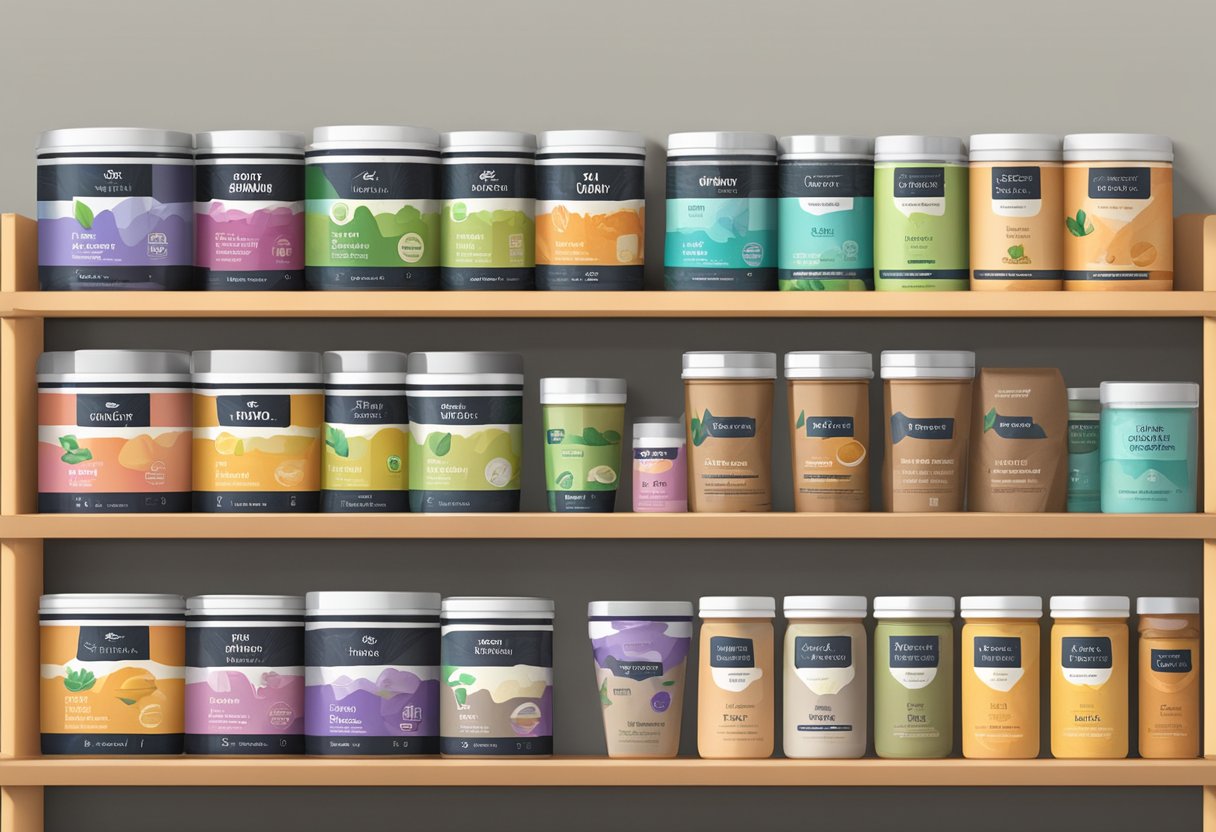
Wading through the sea of plant-based proteins, one may stumble upon some questions that are truly food for thought.
Can you really build muscle with vegan protein powder, or is that just a myth vegetarians tell themselves?
Building muscle with vegan protein powder is no tall tale. When consumed in adequate amounts and complemented with resistance training, proteins from plants can be quite effective. The muscles aren't fussy about the source—pea, rice, or hemp protein types and benefits can all do the trick.
Is shedding pounds with vegan protein powder a piece of cake—or just a piece of kale?
Losing weight might come easier to some with vegan protein powder since plant-based proteins can be lower in calories and fat compared to some animal proteins. Plus, they're chock-full of fiber which can keep one feeling full longer. However, a green smoothie alone won't melt the pounds away without a healthy diet and exercise.
Are all vegan protein powders a health elixir, or are some just a mix of peas and promises?
Not all vegan protein powders are cut from the same cloth. Some are heavy hitters in the nutrient department, while others might just skate by on minimal protein and a dash of marketing. One should scope out the labels to find a blend that's not skimping on the good stuff.
Do vegan protein powders leave whey in the dust, or are they just bluffing with their huffing and puffing?
Vegan protein powders can stand their ground against whey, boasting comprehensive amino acid profiles and minimal allergens. They may not sprint past whey on every track but surely can hold their own in a nutrition race.
How processed are vegan protein powders? Are we talking chips-and-soda-level, or closer to just-smashed-a-banana?
This can vary widely. Some vegan protein powders undergo extensive processing to isolate the protein, while others keep it simple and minimally processed. It's a grab-bag, but more like choosing between baked kale chips and a raw kale salad than a soft drink dilemma.
Are vegan proteins the secret to immortality, or just a good way to make your smoothie feel smug and superior?
They say an apple a day keeps the doctor away, but no mention of protein powder granting eternal life—yet. Vegan protein can certainly top-up a diet with essential amino acids, adding a spring to one's step and possibly making that morning smoothie a bit smug.